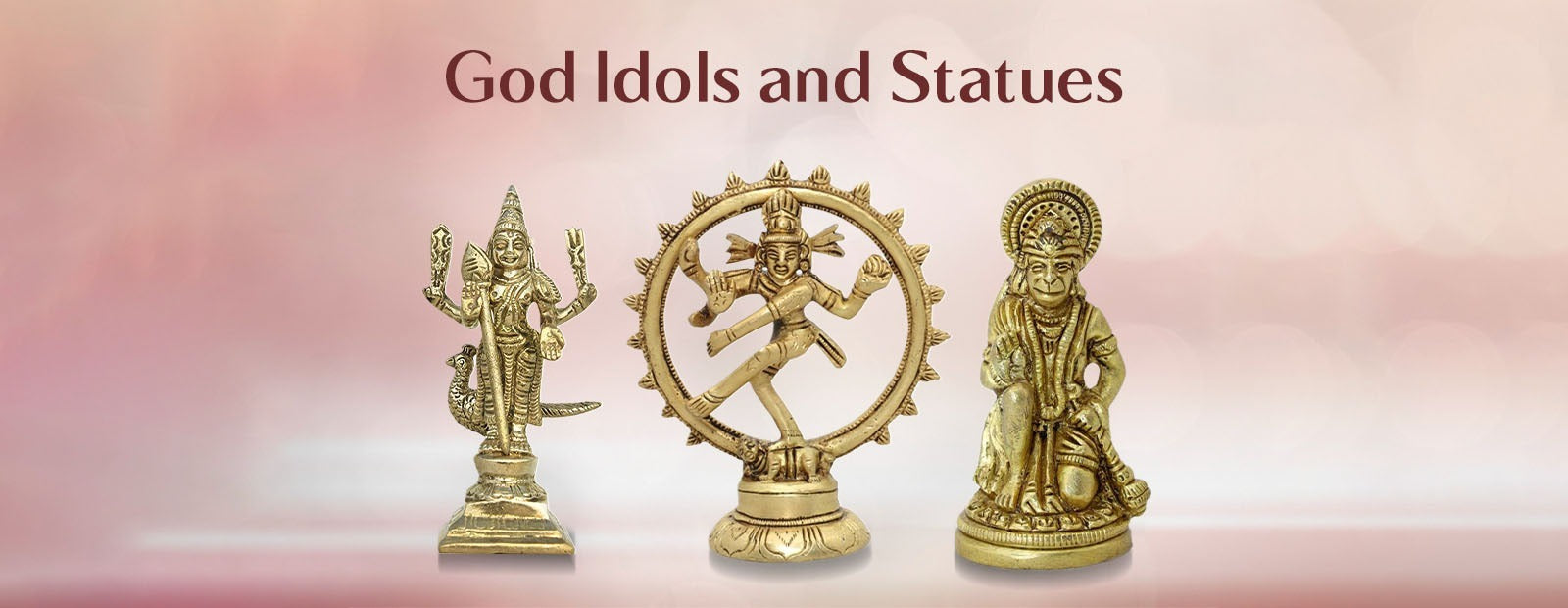
Exploring the Significance of God Idols and Statues
From temples in India to homes all over the globe, God idols and statues convey a strong and significant meaning. To millions of worshippers, these divine images are more than mere decorations – they represent spirituality, devotion and bond with the Divine.
At Giri, we realize the spiritual and emotional significance behind each murti (idol) and statue. Whether it's a tiny Ganesha idol on your study table or a grand Krishna statue in your pooja room, each idol carries with it centuries of tradition, culture and divine power.
Why Do We Worship Idols?
The practice of idol worship, also known as Murti Puja, has been part of Hinduism for thousands of years. Some may wonder – why do we pray to a statue?
Here's the answer: In Hindu philosophy, God is both formless (Nirguna) and with form (Saguna). Although the ultimate reality is shapeless and formless, it is easier for humans to associate with something tangible and visible. Idols give us a means to concentrate the mind, voice our feelings and associate with God in a personal manner.
Just as a photo keeps in mind our loved ones, an idol reminds us about the divine presence. It is a means to show love, thanks, and surrender to the higher power.
The Significance of Every Idol
Every God and Goddess in Hinduism embodies a specific energy, quality, or cosmic function:
-
Lord Ganesha is the remover of obstacles and god of new beginnings. His elephant head denotes wisdom and understanding.
-
Goddess Lakshmi bestows riches, prosperity and abundance. Her statue is usually placed in homes and companies.
-
Lord Shiva, being serene yet strong, embodies change and inner power.
-
Lord Vishnu, the protector, upholds the equilibrium of the universe through his different avatars such as Krishna and Rama.
-
Goddess Durga embodies protection, strength, and triumph over evil.
Every idol is crafted with symbolic significance – from the stance and hand movements (mudras) to the ornaments and weapons they hold. They assist the devotees in reflecting on greater values like courage, peace, love, or devotion.
Materials and Craftsmanship
The traditional idols of God are crafted from materials like:
-
Clay and mud – environment-friendly and usually applied during festivals like Ganesh Chaturthi.
-
Marble – A long-lasting and sophisticated option, commonly applied to temples, and domestic altars.
-
Metal (such as brass, bronze, or panchaloha) – Holy alloys are said to contain spiritual energies.
-
Wood or Stone – Manually carved with fine details, commonly featuring regional art styles.
Here at Giri Aus, we collaborate with expert artisans who adhere to Agama Shastra and Vastu principles when crafting idols. These are ancient texts that provide instructions on how to design and place a murti in such a manner that it welcomes divine energy.
Idol Worship Worldwide
While idol worship is so indigenous to Indian tradition, the practice is also present in other schools of thought:
-
In Buddhism, the Buddha is worshiped through statues and is meditated upon and contemplated.
-
In Christianity, there are statues of Jesus, Mary, and saints in churches and homes.
-
In Japan, symbolic objects and divine figures are placed in Shinto shrines.
-
In Africa and Latin America, tribal and religious communities also use sacred objects and images to reach spiritual forces.
This indicates that in all cultures, individuals utilize symbols and images to reach out to the world which is not seen. God idols, when adored with devotion and love, serve as middlemen between the physical and the spiritual dimensions.
The Role of Idols in Everyday Life
For a majority of the devotees, keeping an idol at home is not merely ritualistic – it's about creating a spiritual way of life:
-
Morning prayers (puja) start with lighting the lamp and worshiping the idol with flowers.
-
In difficult times, just sitting in front of a god and praying relieves stress and gives energy.
-
Children learn virtues such as devotion, discipline, and respect through these rituals.
Even keeping an idol in the correct place at home (according to Vaastu) is thought to create positivity and good vibrations.
Selecting the Proper Idol
When selecting a God idol for home, temple, or gift:
-
Know the intent – New venture? Lord Ganesha is the answer. Harmonious home? Choose Lord Vishnu or Goddess Saraswati.
-
Select appropriate size and material – For home pooja, small idols made of brass, marble, or wood will do. In temples, bigger statues with intricate carvings are used.
-
Connect at a soul level – Occasionally, you find yourself attracted to a murti. Believe the intuition – divine has picked you.
Giri Aus provides you with an excellent range of unique, hand-painted idols for different gods. If you are beginning a fresh spiritual journey or enhancing a prior one, be assured that Giri Aus guides you throughout each step.
Conclusion
God idols are not just images – they are living symbols of our love, trust, and faith in the divine. They remind us to rise above everyday worries, to live with purpose, and to walk the path of truth.
By bringing a murti into your home, you’re not just decorating a corner – you’re inviting sacred energy, positive vibrations as well as divine blessings into your life.
Come to giriaus.com and discover our unique collection of God idols and spiritual items. Allow every nook and corner in your home to shine with the touch of the Divine.
